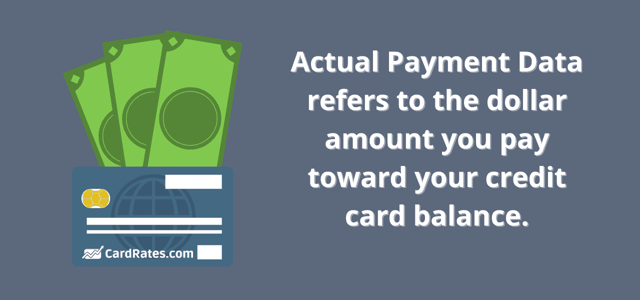
Opinions expressed here are ours alone, and are not provided, endorsed, or approved by any issuer. Our articles follow strict editorial guidelines and are updated regularly.
Some of the largest credit card companies in the United States have caught the attention of the Consumer Financial Protection Bureau (CFPB) due to their credit reporting practices. Some card issuers have stopped sharing (or perhaps they never shared in the first place) what the CFPB considers to be key information about credit card accounts with the consumer credit reporting agencies. Now, the federal agency is calling for the credit card giants to reverse their course.
The situation is complex as there is no requirement in the Fair Credit Reporting Act (or anywhere else) to report anything about your credit card accounts to any of the credit bureaus. And, relative to what was on your credit reports 10 or 15 years ago, your credit card issuer is certainly sharing far more information with the credit bureaus than it did in the not-so-distant past.
A credit card company may have important reasons why it doesn’t report or, more formally, “furnish” all your account details to Experian, TransUnion, and Equifax.
What’s Going Unreported?
There is a field in your credit reports called “Actual Payment Amount.” That field, if reported, will contain the amount you paid on your credit accounts.
For loans and other non-credit card accounts, that amount is normally the same because you generally have the same monthly payment. But your payment amount can be different every month for credit cards. You can make the minimum payment, pay off your entire balance, or pay anything in between. The Actual Payment Amount captures that activity.

The Actual Payment Amount is not and has never been universally furnished by credit card issuers. Some of the issuers that did report it have stopped and, as a result, other issuers have followed suit.
Credit Reporting Rules
First things first. When it comes to credit reports, it’s not a stretch to assume people want negative information to go away (or not appear on their credit reports in the first place) and positive information to remain on their credit reports for as long as possible.
So when something happens and negative items appear on a credit report or a consumer doesn’t get credit for positive financial experiences, people tend to get upset. That’s a reasonable and understandable reaction. Credit reports and credit scores have a huge impact on your financial life, after all.
Here’s where the confusion comes into play. No law requires creditors to share information with the three major credit bureaus or any other consumer reporting agency. Credit reporting is entirely voluntary.
Some businesses and service providers choose not to furnish data to the credit bureaus at all. But the companies that do opt to share information with the bureaus must agree to follow the rules set by the FCRA.
Unreported Payment Data
In February 2023, the CFPB published a blog on its website indicating that several of the largest credit card companies in the United States began to suppress actual payment amounts from the data they were sending to the consumer credit bureaus in 2020.

The CFPB speculates that the decision by these credit card companies to suppress their customers’ payment amounts could harm millions of American consumers. The federal agency asserts that including the information could lead to better credit scores, better financing offers, and billions of dollars in savings.
The CFPB’s language in this respect is imprecise and can lead to confusion as to what’s actually happening. The term “suppression” has a specific meaning in credit reporting nomenclature. To suppress something means to block it from ever being re-reported.
This is a term that’s more appropriately used when someone is the victim of identity theft. Lenders and credit bureaus suppress information that has been caused by true name fraud so it can never end up on your credit reports again. This is sometimes referred to as “cloaking,” and it means the same thing.
Keeping that in mind, credit card companies aren’t suppressing existing data but are, instead, choosing not to furnish it in the first place or are no longer furnishing it. Because all credit reporting is voluntary, companies that share data can choose which information to send to the credit bureaus and which information to keep private.
There are also two other flaws with the CFPB’s claim.
- With respect to the better score assertion, it’s unclear to which scoring system the CFPB is referring. The Actual Payment Amount is part of the Trended Data section of a credit report, and there are only two scoring models that are built to recognize the Trended Data section, FICO 10T and VantageScore 4.0. Neither of those two credit scoring models considers the Actual Payment Amount value, despite looking at other unrelated parts of the Trended Data section. Including the Actual Payment Amount would have no influence on any of your scores, one way or the other.
- For the millions of cardholders who don’t pay off their credit card balances each month, including the Actual Payment Amount on credit reports will allow lenders and, eventually, credit score developers to see that you’re NOT paying off your balances in full each month. That pattern is very predictive of elevated credit risk when compared to those who do pay their cards in full each month. That’s great news for people who pay in full each month and not-so-great news for everyone else. In practical credit scoring terms, if the Actual Payment Amount was considered by credit scoring models and you did not pay in full each month, your credit scores would likely be lower because of the inclusion of Actual Payment Amount information, even if your utilization ratios were low and you never missed a payment.
If the FCRA were to be amended to require the reporting of the Actual Payment Amount, then all lenders would be required to provide that information. But as of now, no such requirement exists.
Why Would Credit Card Companies Stop Reporting Any Type of Data?
The situation may appear odd to consumers and regulators when you consider that these companies may have previously shared this payment data with Experian, TransUnion, and Equifax. But this isn’t the first time something like this has happened.
In the late 1990s, a large credit card issuer stopped reporting the credit limits of their cardholders to the credit bureaus. As a result, many other credit card issuers did the same thing. This is essentially the same thing that’s happening today with the payment amount data.
But unlike the Actual Payment Amount, credit limits play a large role in determining your credit scores across all of FICO’s credit scoring models. VantageScore didn’t exist yet in the late 1990s, but credit limits play a large role in their scores as well.
The credit reporting industry adjusted its policies and made a compelling case for card issuers to resume credit limit reporting. Eventually, credit limits made their way back onto credit reports and have been there ever since.
With respect to the payment amount, the CFPB reached out to several large credit card companies in May 2022 and asked the following questions:
- Did you ever report actual payment information to the credit bureaus in the past?
- Why did you stop sending complete payment data to the credit bureaus (if applicable)?
- Do you have plans to change your credit reporting policies?
The credit card companies informed the CFPB that one of the large card issuers first opted to stop sharing payment amount details with the credit bureaus. As a result, other companies were forced to follow suit. Otherwise, they would be at a competitive disadvantage. This is certainly true, and it’s the same reason card issuers temporarily stopped reporting credit limits in the ‘90s.
Remember, when a credit card company shares information with a credit bureau, other credit card companies (i.e., their competition) may be able to access that data to make competing offers. If you’ve ever received a preapproved credit card offer in the mail, there’s a very good chance the credit card company had access to your credit information.
By having access to your payment amount details, it makes it easier for a card issuer to make a competing offer and poach customers. All card issuers want is a level playing field, which is why several large issuers are not reporting payment amounts.
Credit Reporting Is Voluntary
Modern credit reports contain far more information than what was included in earlier versions of credit reports. Your credit reports now contain a 24-month look-back at your payment history and other details. And many credit scoring models (including the newest version of FICO Scores) factor some of this information into your credit score.
But credit reporting has always been an optional process. There’s nothing in the Fair Credit Reporting Act that forces a company to report information about you or any other consumer to the credit bureaus. Accordingly, there’s nothing you can do to force a credit card issuer or any other lender to add something to your credit report.
Instead, you’re wise to focus on the details you can control, such as the factors that influence your FICO Score and developing good credit card management habits.









